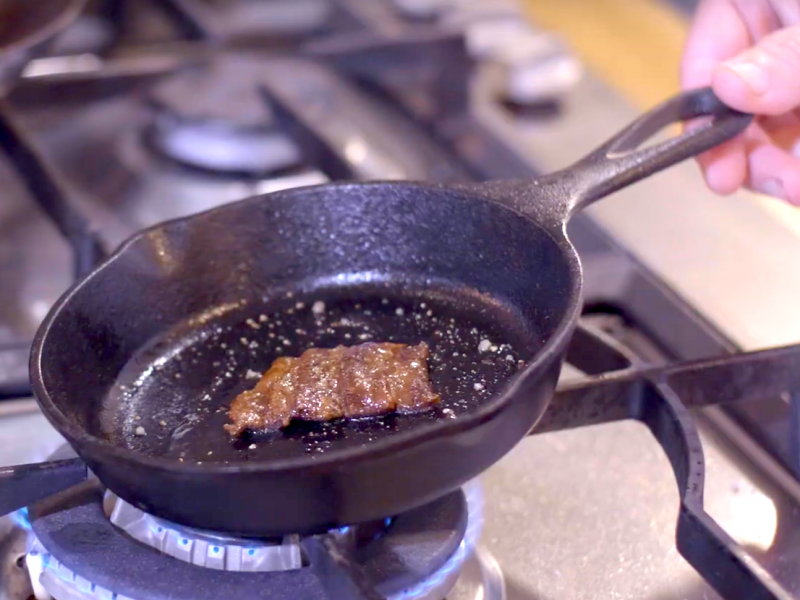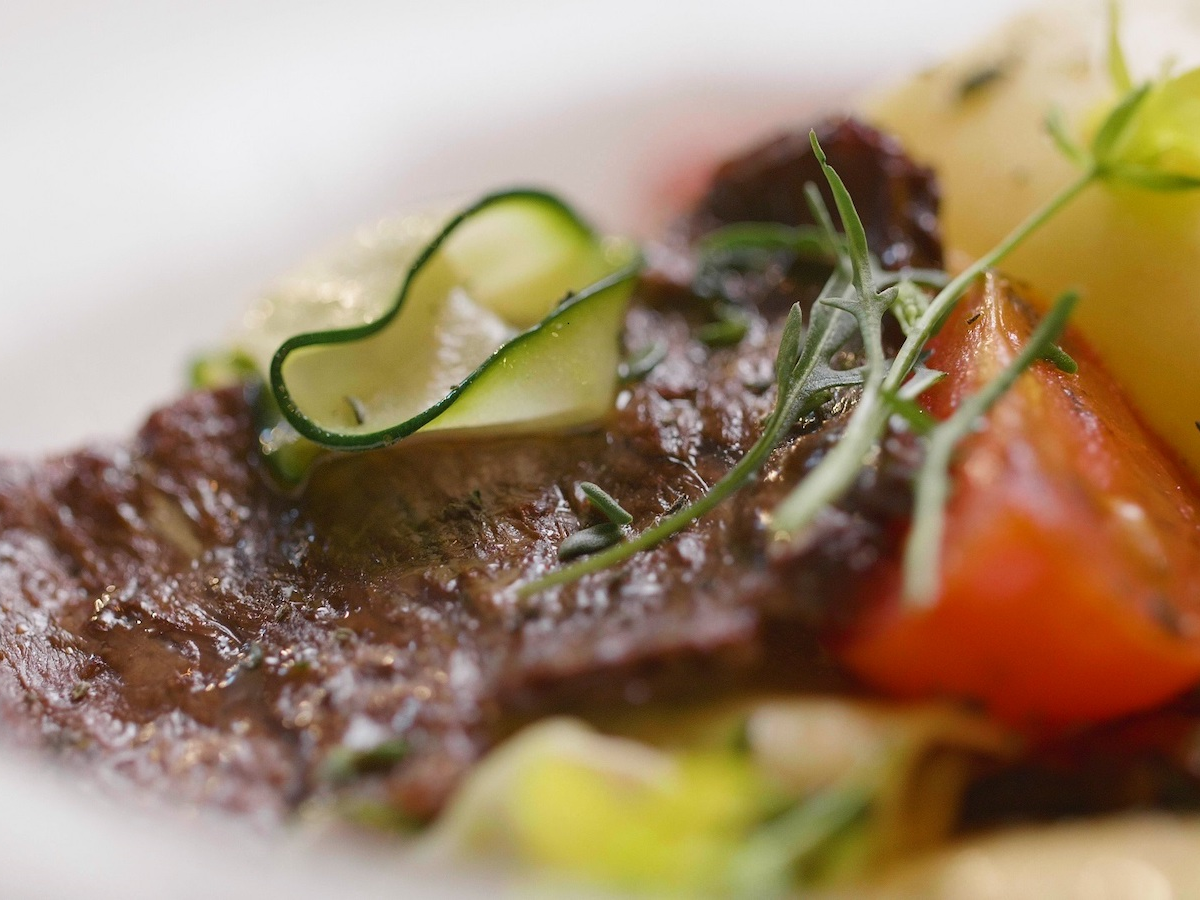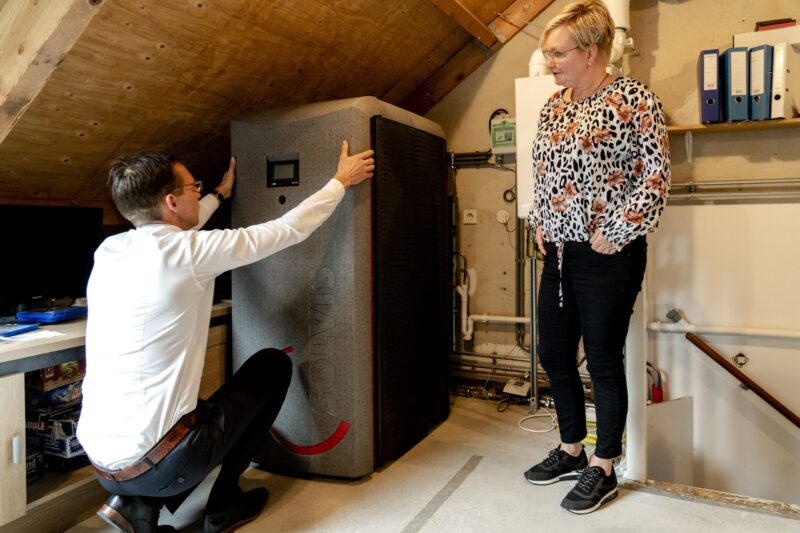- The Israeli company Aleph Farms aims to make cuts of environmentally friendly meat that resemble the real thing using animal cells, also called “lab-grown” or “clean” meat.
- Aleph has now created a prototype steak, the first produced publicly in the world, the company said on Wednesday.
- While several companies have made prototypes of lab-grown meats, none are available in restaurants or grocery stores.
- Aleph got its start with help from an Israeli research institute and an incubator that is part of the food giant that owns Sabra – the most popular hummus in America.
For the first time in its roughly two-year history, an Israeli startup claims to have achieved a key step toward the holy grail of the lab-grown-meat industry: turning animal cells into the delicate and sinewy tissue of steak.
Aleph Farms, which got its start with help from an Israeli research institute and an incubator that’s part of the food giant that owns Sabra – the most popular hummus in America – said on Wednesday that it had produced the world’s first lab-grown steak.
Based on photographs and video, the thin but clearly steak-like cut of beef appears to be a big milestone toward eventually making meat without slaughter that is ready for people to eat.
“The initial products are still relatively thin, but the technology we developed marks a true breakthrough and a great leap forward in producing a cell-grown steak,” Aleph’s CEO and founder, Didier Toubia, said in a statement.
A holy grail in the lab-grown-meat world

If there were a holy grail in the world of real meat made without farm animals, it would be steak.
While many companies make plant-based burgers, a handful of startups are trying to make real, environmentally friendly beef and chicken from animal cells - bypassing the farm animals. None, however, have released a product consumers can buy in stores or restaurants.
The Silicon Valley-based startup New Age Meats let Business Insider taste its lab-grown-sausage prototype in September; the vegan egg and mayo company Just (formerly Hampton Creek) claims to have made prototype chicken nuggets; and the Bill Gates-backed startup Memphis Meats said it produced the world's first chicken strips from animal cells last March.
But none has publicly achieved the goal of replicating the texture, shape, and mouthfeel of savory, chewy sirloin.
That's because crafting a burger, meatball, or any other product that combines several ingredients with ground meat or seafood is much easier than mimicking the complex texture and flavor of a steak or a chicken breast.
"Making a patty or a sausage from cells cultured outside the animal is challenging enough - imagine how difficult it is to create a whole-muscle steak," Toubia said.
The challenge of going from cell to steak

Experts and venture capitalists are convinced that meat made in labs is coming, and it's poised to disrupt a $200 billion industry. But they acknowledge that getting the products out of the lab and into restaurants will take time.
Rather than spending time trying to create meatballs or nuggets, Aleph headed straight for the goal of a steak. That's a goal the company has had since the outset and one it may be uniquely poised to tackle thanks to its foundations in regenerative medicine.
Shulamit Levenberg, the dean of the Technion Israel Institute of Technology's biomedical engineering faculty, serves as Aleph's chief scientific officer, and Neta Lavon, an experienced stem-cell researcher who developed cell-therapy products from stem cells for diabetes and the neurodegenerative disease ALS, serves as Aleph's vice president of research and development.
Instead of growing only one or two types of animal cells on a flat surface, Aleph grows four types of animal cells in three dimensions. The company also claims to be growing them in a medium that is free of fetal bovine serum, the rich cow-based liquid that's currently the lab standard for nourishing cells.
"We're the only company that has the capacity to make fully-textured meat that includes muscle fibers and blood vessels - all the components that provide the necessary structure and connections for the tissue," Toubia told Business Insider in May.
Aleph is calling its prototype steak a "minute steak," because it takes just a couple of minutes to cook, Amir Ilan, the chef of the Israeli restaurant Paris Texas and the person who prepared the steak on video, said in a statement.
Aleph was cofounded by the Technion Israel Institute of Technology and an incubator called The Kitchen, which is part of Strauss Group. Strauss owns Sabra hummus and distributes Cheetos and Doritos in Israel as part of an agreement with Pepsi.
Watch a chef prepare Aleph's first steak prototype:











